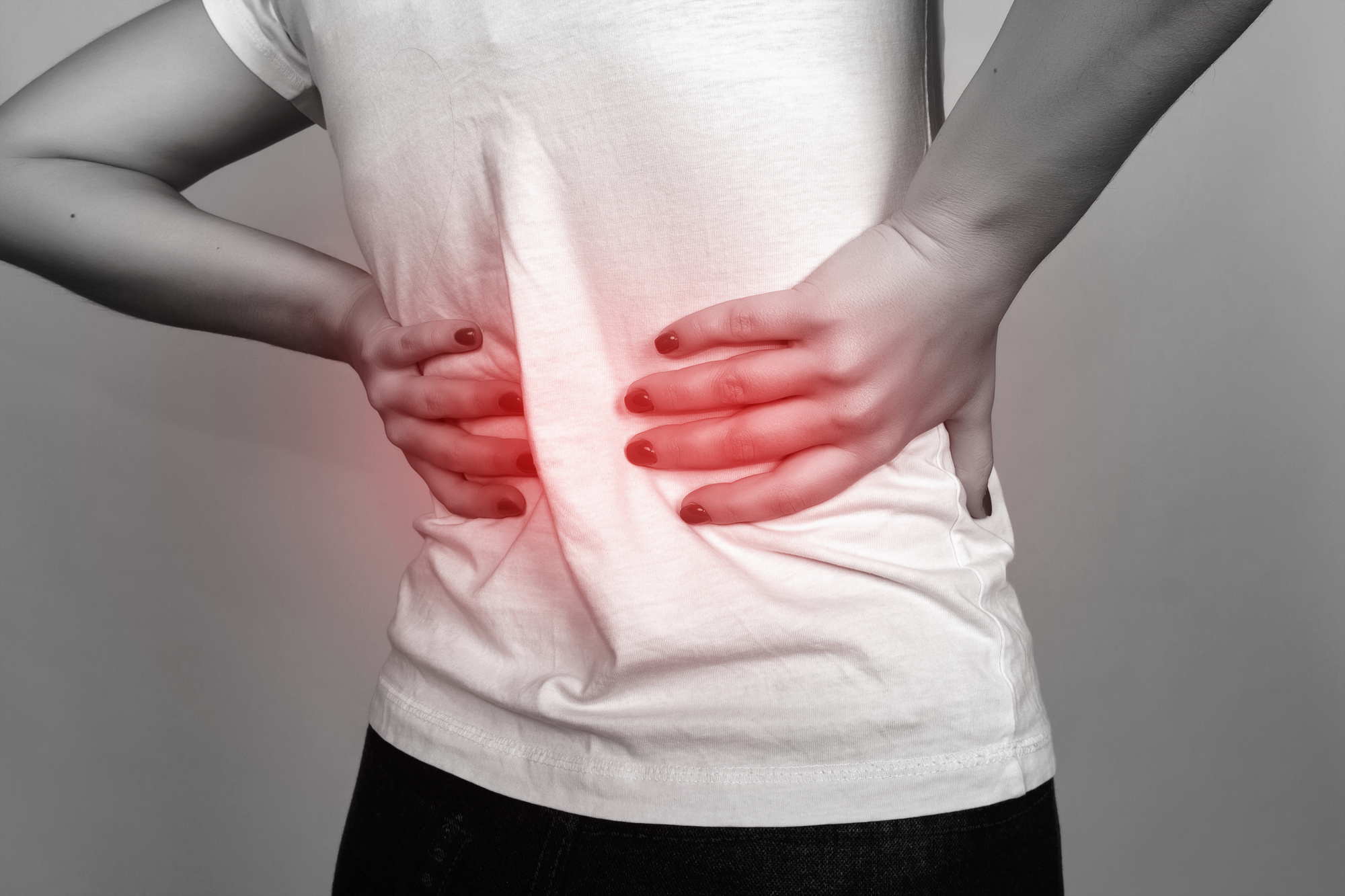
Closeup portrait of a pretty woman suffers from backache standing over gray background black and white with red accent
If you or a loved one are living with back pain, let us be the first to say: our sympathies.
Back pain is something that is often underestimated until it affects you personally. What’s more, it’s far more frustrating when the cause of the pain has yet to be confirmed. Our backs are, in reality, an intricate collection of components that keep our entire body in balance—literally and figuratively.
One of the most common conditions is a slipped disc. This article discusses the 5 telltale symptoms of a slipped disc. So keep reading to find out if any of these symptoms are ones you recognize.
1. Pain, Numbness, or Weakness in Legs
Pain, numbness, or weakness in your legs is likely a sign of a condition known as sciatica. Swelling from a slipped disc may intrude on areas of the spinal canal. As a result, this can put pressure on the sciatic nerve. This nerve system has far-reaching influences down both legs. So, if you are experiencing difficulties using one or both of your legs, it could likely be a sign that the above-mentioned scenario has occurred. While there might be other causes for sciatica, a slipped disc is up there as one of the most common.
2. Pain, Numbness, or Weakness in Other Parts of the Body
The same conditions that may occur in our first point can, on less common occasions, take place in other parts of the body like the neck, shoulder, or arms.
The point is that slipped disc symptoms occur depending on which part of the spine has become herniated. While it’s more frequently in the lower part of the spine, slipped discs can happen higher up. So, never overlook discomfort in those less common areas. If in doubt, contact a professional chiropractor like those at dodychiro.com
3. Pain During Certain Activities
The spine is an amazingly versatile mechanism capable of incredible feats. However, when a disc is herniated, even the simplest of tasks can feel like a form of torture.
Does your back pain or sciatic symptoms get aggravated during the following activities?
- Coughing or sneezing
- Prolonged time sat or lying down
- Bending forward
- Lifting weighty objects
All of these activities and the like can put pressure on the herniated area, causing sharp bouts of pain or even long-lasting injuries.
4. Resting Brings Relief
Taking weight off of your back while lying flat or sitting in a reclined position is something we all need every once in a while. But if this is the only way you feel you can get a level of rel¡ef from your back pain, this may be an indication that your body weight is putting immense pressure on a slipped disc.
As we mentioned in point 2, long periods in reclined positions can also bring discomfort due to the external pressure acting on the area. If you feel stuck between a proverbial rock and a hard place, this combination could be more red flags worth paying attention to.
5. Your Age
Ok, so technically this isn’t one of the symptoms of a herniated disc, but a slipped disc could be a symptom of advancing age. The disc works as a cushion between the vertebrae. Sadly, the material these discs are made from can deteriorate over the years and lose their integrity. This means that slipped disc symptoms become more likely the older a person gets.
Do You Have Symptoms of a Slipped Disc?
Do any of these symptoms of a slipped disc strike a chord with you? If the answer is “yes”, don’t delay in contacting professionals to receive the necessary slipped disc treatment for you. Once you have, our site has a lot more insightful articles like this one. So, make it your goal to get well so you can continue educating yourself about wellness and everything else our site has to offer.
We’ve got your back!
Leave a Reply